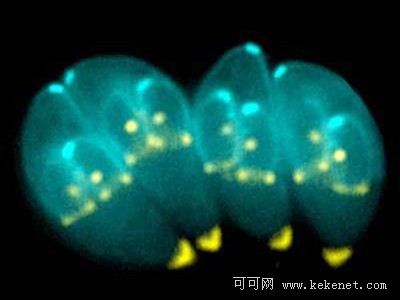Enough to fill a big soup can. "That's three to five pounds of bacteria," says Lita Proctor, the program coordinator of the National Institutes of Health's Human Microbiome Project, which studies the communities of bacteria living on and in us. The bacteria cells in our body outnumber human cells 10 to 1, she says, but because they are much smaller than human cells, they account for only about 1 to 2 percent of our body mass—though they do make up about half of our body's waste.
足夠裝滿一個大湯碗了!美國國家衛(wèi)生研究進行的一項寄生菌研究項目主要研究了寄生在人體上的寄生菌落,該項目的協(xié)調(diào)員莉塔普羅克特告訴我們,"寄生在人體身上的細(xì)菌應(yīng)該有3-5磅.這些細(xì)菌的數(shù)量是人體自身細(xì)胞的10倍以上,但由于細(xì)菌細(xì)胞體積比人體細(xì)胞要小得多,所以它們只占人體體積的1-2%左右,剛好是人體代謝消耗體積的一半."
The host of bacteria we carry around weren't well-cataloged until recently. In July, at North Carolina State University, the Belly Button Biodiversity study found about 1,400 different strains of bacteria living in the navels of 95 participants. Of these, 662 strains were previously unrecognized.
但是直到最近我們才將人體隨身攜帶的細(xì)菌進行了較為全面的分類.美國北卡羅來納州立大學(xué)在今年7月份的時候公布了肚臍生物多樣性研究結(jié)果,它們在95位受試者的肚臍中發(fā)現(xiàn)大約有1400種不同種群的寄生菌,其中有662種是先前被未發(fā)現(xiàn)過的。
n. 塊,大量,眾多
adj. 群眾的,大規(guī)模












